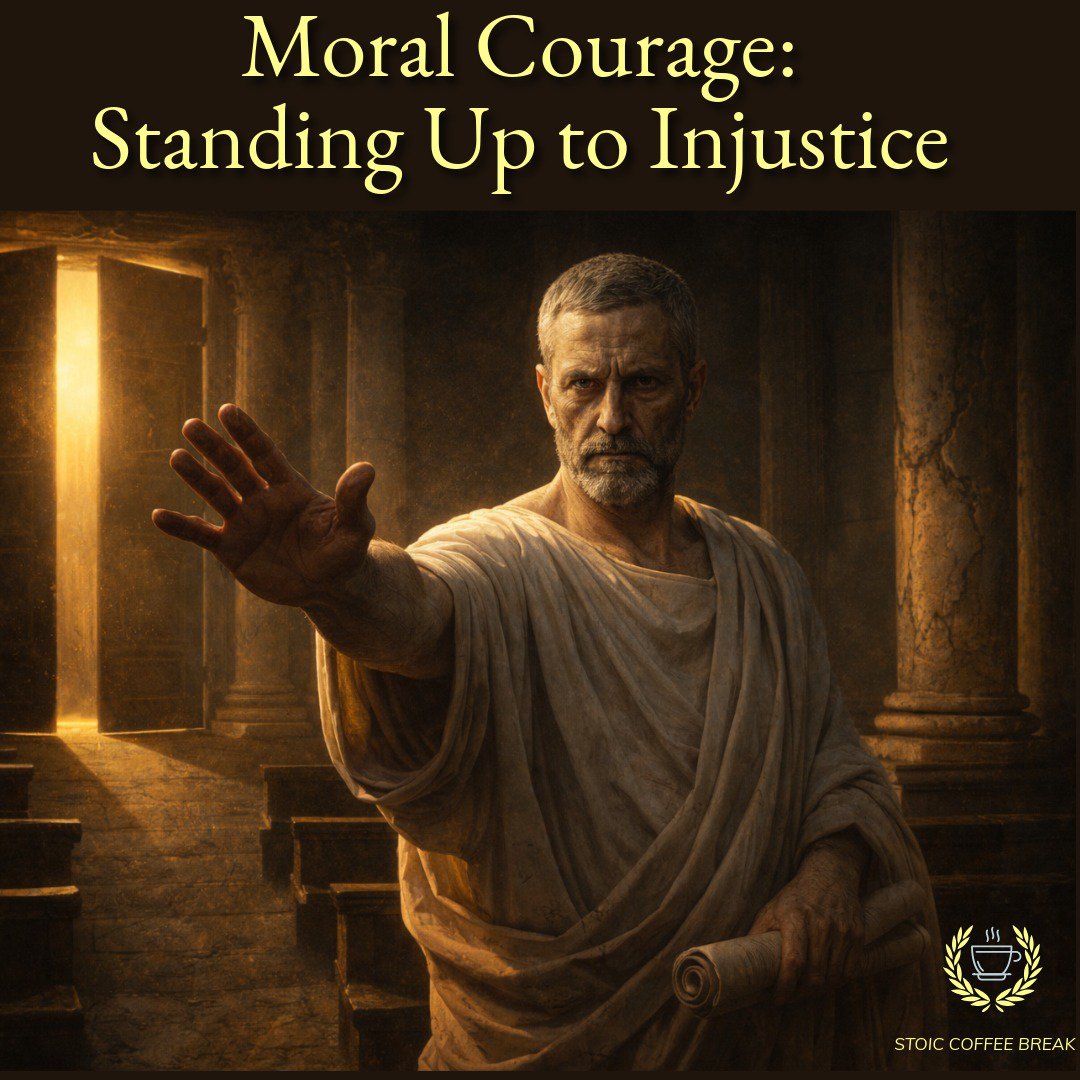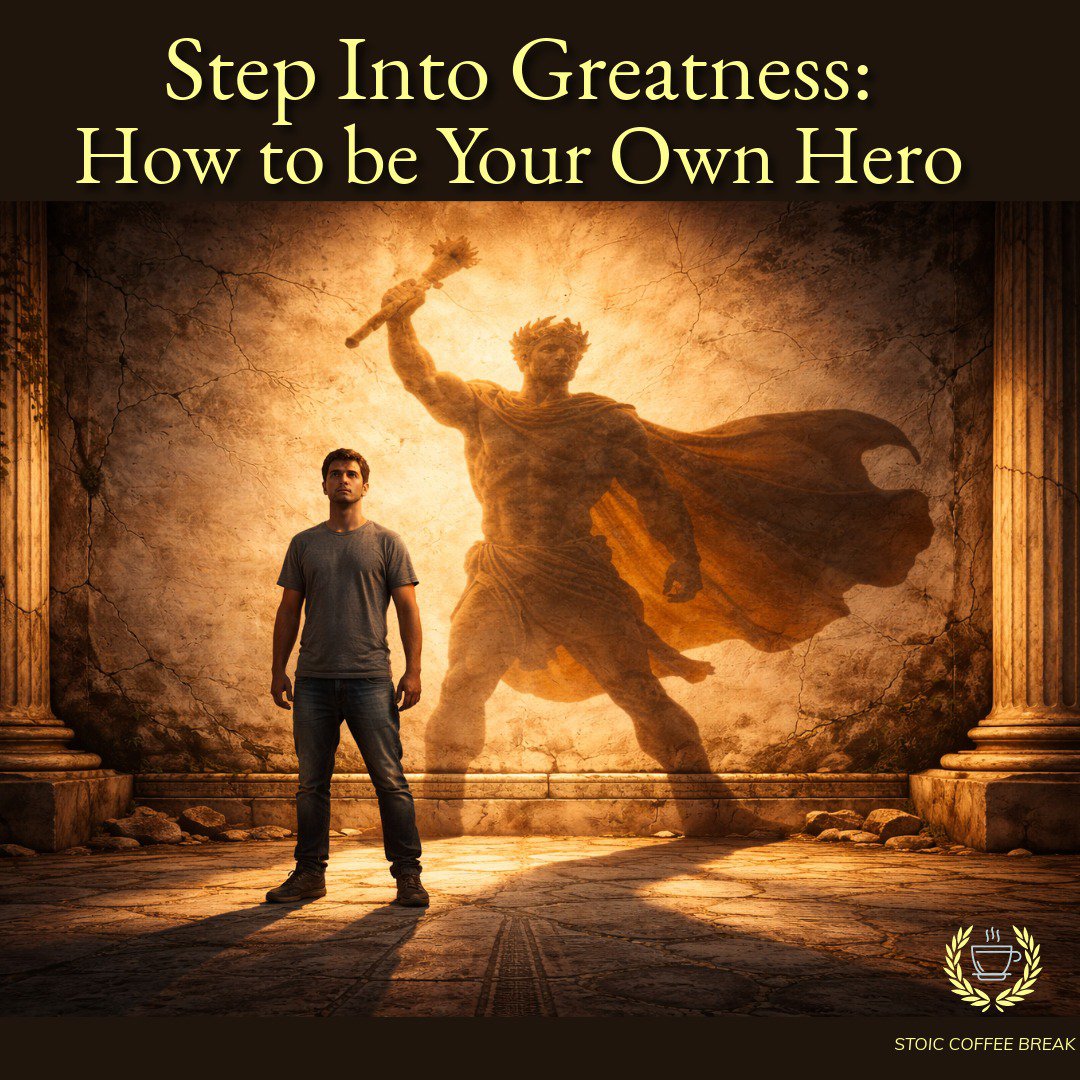
Last weeks podcast got a quite a few responses and questions. Some of them turned into some back and forth discussions about some of the ideas, so I want to dig into them a little deeper.
The first question was from a listener who asked:
“What if instead of looking at human existence as, "you don't deserve anything", we instead look at it as “you deserve exactly what you receive?”
Now, I understand that "you don't deserve anything" seems kind of harsh, but it is what I meant. When you say that you deserve something, it means that you feel entitled to it, that it is something owed to you, and I truly believe that nothing is owed to you in this life. If life were fair, we would all be born with the same advantages, but we all know we are not.
Think about it from a very basic level. The universe or god doesn’t owe anyone anything, even from they day we’re born. If this were the case, then things like infants dying in childbirth wouldn’t happen. The reason that fewer children die in childbirth now than say 100 years ago, is because we have worked as a society to improve healthcare, as well as the whole process of giving birth.
This did not happen because we wished the universe would let more children survive childbirth. It happened because people over generations took actions to improve healthcare. We decided as a society that it would be better for all of us if more children survived.
Some may think this attitude is cynical, but I think it’s far from it. I think the fact that we have created societies and worked to improve the health of everyone is an amazing achievement of humanity.
In the Bhagavad Gita it says:
"You have the right to work, but for the work's sake only. You have no right to the fruits of work. Desire for the fruits of work must never be your motive in working."
(Note, this does not refer to legal obligations. Work here means the work of living, of doing good in the world.)
Nothing is ever owed or guaranteed to you in this life. Live your life in a way that you find honorable not because of some great reward, but rather because you want live honorably and in a way that you're proud of.
So to circle back around let's take what the listener said, "you deserve exactly what you receive". This would mean that if someone got cancer, they somehow deserved it. If someone got screwed over in a business deal, they somehow deserved it. To me, this attaches a moralistic judgment around the person. "They must have done something to deserve it!"
We do this because want to believe that life is fair, and it is not. Life happens, and we want to make sense of it. We see an effect and try to assign a cause, a motivation, a reason for it.
We especially do this to ourselves. When we fail at something like a relationship, we often blame ourselves thinking we deserve what we are getting. We may be in a relationship that is not healthy for us, but we may think it's what deserve so we hold on even though we're miserable, because it's what we think we deserve.
Epictetus warned of this when he said,
"An ignorant person is inclined to blame others for his own misfortune. To blame oneself is proof of progress. But the wise man never has to blame another or himself."
What this means is that when we blame others or ourselves, it is because we had expectations that were not met. If we can understand that, then we can deal with "what is", rather than getting upset about what "should be".
This listener then responded saying that they were leaning towards the idea that the universe gives us was we need to learn. I know that many people feel this way, but that begs the question: who or what determines what we need? Is there some god/universe/intelligence giving us these things for us to learn?
I'm of the mind that life just happens. I think there are plenty of opportunities for us to learn if we decide to take them. Plenty of people do not take them. This is why the stoics were so insistent on understanding the things you have control over – your thoughts, your choices, and your actions. In short, your will.
The only way that you can learn something from an experience is because you choose to do so. Because you give some kind of meaning to an experience that helps you learn from it. This means you have to make an effort and choose to learn and grow. It doesn't just happen.
Two people can go through a car wreck and have two totally different outlooks on what happened. One can come out and think it was the worst thing that ever happened because it almost killed them. The other can see it as a life affirming event that reminded them of the shortness of life so they are grateful for every moment they have left.
Ryan Holiday says:
"The obstacle in the path becomes the path. Never forget, within every obstacle is an opportunity to improve our condition."
For me, this means there’s is always the opportunity to learn from any experience, but we have to step up take it. You have to develop a mindset to learn from any challenge that comes your way. That way it doesn't matter what experiences happen to you, you will learn from it. You will take those opportunities where others won't.
Alright, let’s move on to another question. This listener writes:
“Hey Erick, I think the problem is most of us think that when we do good to others, then we will get the same but it doesn't happen and many of us end up being sad. Right now I am in the same situation where I feel I deserve something but as I am not getting it and constantly fail to achieve it. I feel sad. I want to know how can I avoid this mental obstacle and how can I cultivate a habit in long term where this type of mental blocks don't slow my growth or doesn't affect my well being. Also, do you believe in karma. I want to know what are your thoughts and stoic views on it.”
One of the fundamental stoic principles is to recognize what you can and cannot control. To be honest, I think that it is probably the most important principle, and I think that most other principles are built off of this one simple yet powerful idea.
As Wayne Dyer eloquently puts it:
“Your reputation is in the hands of others. That's what the reputation is. You can't control that. The only thing you can control is your character."
If you are only nice to others so that they’ll be nice to you, then your actions are really just a way to manipulate others. I mean, I know what it’s like to be around someone that is just being nice to you because they want something. That something might just be for us to like them or because they’re tying to get us to give them something, but nonetheless, it doesn’t feel good when others are trying to manipulate us.
The way that you inoculate yourself againts this kind of unhappiness, is to decide to live the way that you want to live regardless of what others do. Your choices and actions are the only things that you control, so you decide to follow particular principles in your life.
In this case, the principle is that you want to be a kind person, not because of other people, but because it’s the kind of person that you want to be. You cannot control if others will be nice to you. If you’re only nice to others when they’re nice to you, then you are allowing them to control you. You act with kindness regardless of how others act towards you. How they act should not dictate whether or not you live a certain principle.
So, for the second part, do I believe in karma? At it’s origin, karma is a belief in Hinduism and Buddhism that your actions in this life have consequences in the next life. Since I don’t believe in an afterlife or reincarnation, I don’t believe in this definition in karma.
I also don’t believe in karma in the more modern tit-for-tat way that many think about it. For example, many people think of karma as a force that if you do something bad, then something bad will happen to you. I don’t think it’s ever that cut and dry. That would mean there is some unseen external force that is judging what you do, and again, what’s the criteria? Who or what is making those decisions?
What I do believe is that your actions have consequences, though those are often unseen and hard to trace. I believe that what you put out in the world comes back to you. For example, being kind to others doesn’t mean they’ll like you, but if you are mean and angry with others, then there is a good chance they won’t want to be around you.
If you are kind to others, even when they are not kind to you, then you feel good about yourself. How they feel about you doesn’t matter. You are in control of your life because you have made a decision of how you want to live. This spills over into all other areas of your life. I find that when I am kind to others, then I generally am surrounded by others that are kind to me. If they are not, I do my best to still act how I want to, and usually just don’t spend time around them.
The idea of a fair world is a hard one to shake. We think that things should just balance out a certain way, and we are often frustrated when they don’t work out how we think they should. Really, what it comes down to is that we have expectations on things outside of our control, and when those aren’t met, we aren’t happy. When you recognize that you have the power to be the kind of person you want to be in any situation, then you have the opportunity to control the one thing that you can.
Yourself.
Hello friends! Thank you for listening. Stop by the website at stoic.coffee where you can sign up for our newsletter, and buy some great looking shirts and hoodies at the Stoic Coffee Shop.
Want to help support this podcast? Become a patron on patreon!
Like the theme song? You can find it here from my alter ego. 🙂
Find me on instagram or twitter.
Lastly if you know of someone that would benefit from or appreciate this podcast, please share it. Word of mouth is the best way to help this podcast grow.
Thanks again for listening.


